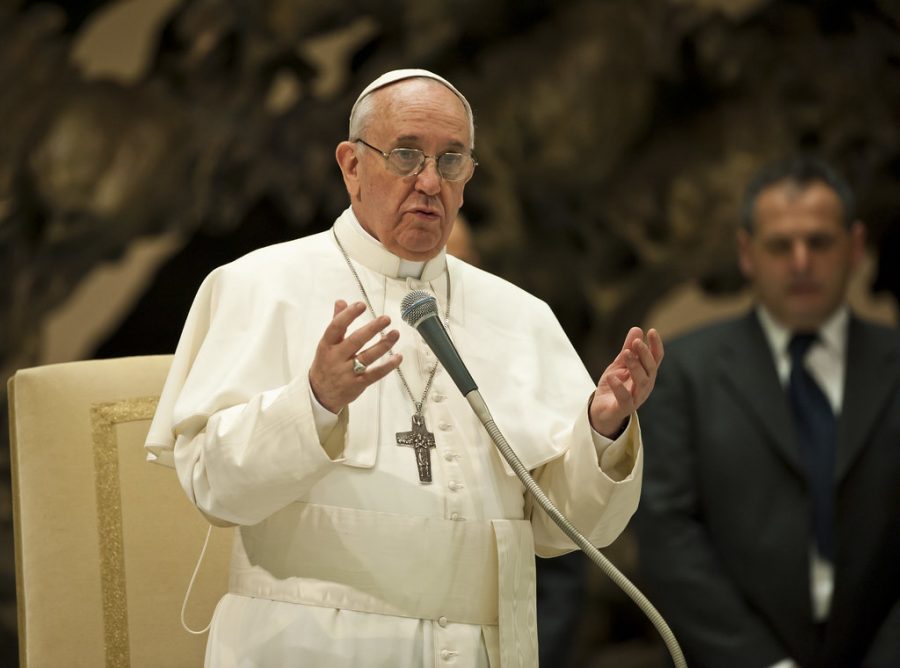Lifting the veil: a look into the response to the Catholic clergy sex abuse scandal
Pope Francis answering the questions of reporters at a press conference
March 6, 2020
On Jan 28, respected investigative journalism site ProPublica published a deep dive into the Roman Catholic Church’s response, or lack therefore of, to the growing number of allegations of sexual abuse by priests within the church. The most eye-catching aspect of the story is the database that ProPublica compiled for this story, which, in their words, allows viewers to search “U.S. Catholic clergy that have been deemed credibly accused of sexual abuse or misconduct.” The database contains the names of 5,800 of the clergy, ranging from hundreds of dioceses across the country.
According to the Association of Religion Data Archives (ARDA) this recent stint of news and legal coverage of the scandal began back in 2002 with allegations of sexual abuse of children against clergy serving in the Archdioce of Boston. Though 2002 was the kicking off point for coverage of the most recent scandals, child sex abuse by clergy has been a problem for much longer. According to the New Yorker, “By 1992, Catholic dioceses in the U.S. had paid out four hundred million dollars to settle hundreds of molestation cases.” Since then the scandal has expanded far beyond a single Archdiocese, encompassing the Roman Curia – the main Catholic governmental body- for years as well as multiple Popes. This scandal has severely damaged the reputation of the church, both in America and the global community and has led to much questioning of the ability and morality of leadership.
The pope is the religious head of the church and chosen from among high ranking cardinals and acts as a source of spiritual leadership. Pope Benedict XVI resigned in 2012 after a wave of scandals, including what many alleged to be his poor treatment of the child sex abuse scandal. Pope Francis, successor to Pope Benedict XVI, has a mixed record in response to sex abuse allegations. In 2018 he mishandled a situation in Chile calling allegations of a cover up of sexual abuse orchestrated by Bishop Juan Barros “all calumny,” a colloquial term for lies. Francis soon backed down from his remarks, publishing an open letter in April apologizing for his actions and denouncing the secretive culture within the church regarding sexual abuse of children by their clergy.
Continuing positive steps in February of 2019 Francis called a global meeting of bishops, officially called the, “Meeting on the Protection of Minors in the Church” dedicated to discussing the growing scandal and how the church should respond. He’s also taken steps such as revoking pontifical secrecy in December of 2019. According to the Washington Post his revocation means that information from the Church’s internal sexual abuse trials “can be handed over to “lawful authorities” who make the request.” Many have applauded the steps but insist it’s not enough and only a start.


